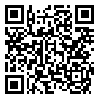جلد 17 -
جلد 17 - صفحات 0-0 |
برگشت به فهرست نسخه ها
Download citation:
BibTeX | RIS | EndNote | Medlars | ProCite | Reference Manager | RefWorks
Send citation to:



BibTeX | RIS | EndNote | Medlars | ProCite | Reference Manager | RefWorks
Send citation to:
Baniaghil A S, Eksir M, Behnampour N. Evaluation of time management skills training's effect on educational achievement of female student in high school Tenth, Gorgan, 2018. J Res Dev Nurs Midw 2020; 17
URL: http://nmj.goums.ac.ir/article-1-1259-fa.html
URL: http://nmj.goums.ac.ir/article-1-1259-fa.html
Evaluation of time management skills training's effect on educational achievement of female student in high school Tenth, Gorgan, 2018. Journal of Research Development in Nursing and Midwifery. 1399; 17 ()
چکیده: (4036 مشاهده)
Background: Time management skills are so important in education and it can be very effectiv in this process. Given that the knowledge and application of time management skills can reduce teenager's time wasting and can help them to improve their academic achievement, this study aimed to investigate the effect of time management skills on academic achievement of second grade girl students in Gorgan in the 2018 academic year. This study is experimental with pre-test and post-test with control group.
Methods: The statistical population of the present study consisted of all 2785 female students of second grade high school in 2018 academic year covered by health centers in Gorgan. Among them, 40 students were selected by random sampling method and then the samples were divided into two into treatment and contrl group. Samples of both treatment and control groups completed the localized Britton & Tesser Time Management Questionnaire. Then, only for the treatment group, advicement were implemented. One month after the intervention, the samples (treatment and control group) completed the time management questionnaire again. At the end of the academic year, the scores of the first semester and second semester of students in the 2018 academic year were obtained. Data were finally analyzed with spss18 software.
Results: The results showed that the mean score of the control group students in the second stage decreased slightly compared to the first stage, although the paired T-test showed that this drop was not statistically significant (P> 0.05). Pre-test and post-test Wilcoxon test was used to evaluate academic achievement in the treatment group. Results showed a slight increase compared to the first step, although this increase was not statistically significant (P> 0.05). The results also showed a statistically significant difference at the level of (P> 0.05) in the mean of time management scores in the two control and intervention groups. In the subscales of short-term planning time management the two groups were evaluated before and after the intervention. Results showed a significant difference there was a statistically significant difference between the two groups in the mean score of short-term planning at (P> 0.05) level. The obtained data also showed that there was a statistically significant difference between the two groups in the mean attitude time score. The findings also indicated that there was a statistically significant difference between the two groups at the level of (P> 0.05). There is no long-term planning.
Conclusions: According to the findings, it can be concluded that the intervention did not improve the students' academic achievement, but it did improve the time management skills in the samples.
Methods: The statistical population of the present study consisted of all 2785 female students of second grade high school in 2018 academic year covered by health centers in Gorgan. Among them, 40 students were selected by random sampling method and then the samples were divided into two into treatment and contrl group. Samples of both treatment and control groups completed the localized Britton & Tesser Time Management Questionnaire. Then, only for the treatment group, advicement were implemented. One month after the intervention, the samples (treatment and control group) completed the time management questionnaire again. At the end of the academic year, the scores of the first semester and second semester of students in the 2018 academic year were obtained. Data were finally analyzed with spss18 software.
Results: The results showed that the mean score of the control group students in the second stage decreased slightly compared to the first stage, although the paired T-test showed that this drop was not statistically significant (P> 0.05). Pre-test and post-test Wilcoxon test was used to evaluate academic achievement in the treatment group. Results showed a slight increase compared to the first step, although this increase was not statistically significant (P> 0.05). The results also showed a statistically significant difference at the level of (P> 0.05) in the mean of time management scores in the two control and intervention groups. In the subscales of short-term planning time management the two groups were evaluated before and after the intervention. Results showed a significant difference there was a statistically significant difference between the two groups in the mean score of short-term planning at (P> 0.05) level. The obtained data also showed that there was a statistically significant difference between the two groups in the mean attitude time score. The findings also indicated that there was a statistically significant difference between the two groups at the level of (P> 0.05). There is no long-term planning.
Conclusions: According to the findings, it can be concluded that the intervention did not improve the students' academic achievement, but it did improve the time management skills in the samples.
| بازنشر اطلاعات | |
 |
این مقاله تحت شرایط Creative Commons Attribution-NonCommercial 4.0 International License قابل بازنشر است. |



